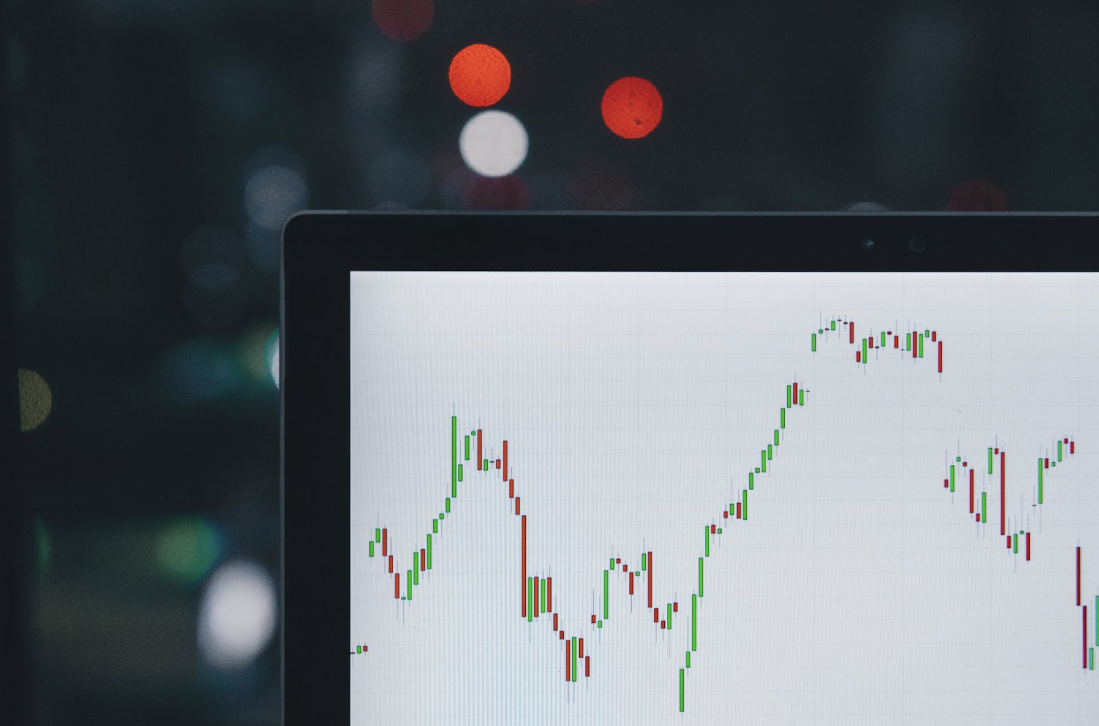QRL: Leading The Charge Against Quantum Risk In Cryptocurrency Amidst Speculation And Gains
ACCESS Newswire
24 May 2023, 18:35 GMT+10
CHEYENNE, WY / ACCESSWIRE / May 24, 2023 / - Amidst the cutting-edge advancements of blockchain technology and cryptocurrency, a stealthy yet formidable challenge lurks - quantum computing.

Quantum computers are powerful computers that use quantum physics to solve complex problems that are beyond the capabilities of classical computers. If current trends in progress continue, quantum computers are expected to break some of the currently used cryptography algorithms for which there are no replacements - Bitcoin and Ethereum included.
Nonetheless, even as investors continue to overlook this looming threat, the Quantum Resistant Ledger (QRL) serves as a promising solution: the world's first post-quantum store of value. The following article will deep dive into the risks of quantum computing and examine how QRL is poised to safeguard the future of digital assets.
What Is Quantum Risk?
To fully comprehend the implications of quantum risk, it's important to understand how quantum computing works and what sets it apart from traditional computing.
The Mechanics Of Quantum Computing
To understand quantum risk, it's first important to understand the mechanics behind quantum computers.
Quantum computers use quantum physics to solve complex problems that are beyond the reach of classical computers. This is achieved by using qubits, which are like the regular bits in a computer but way more advanced.
Bits are the basic building blocks of information in computers. They can have two values, either 0 or 1. These values are like a simple on-off switch that computers leverage to process and represent data. Unlike bits, qubits can be both 1 and 0 at the same time, which means they can make computers exponentially faster.
Vulnerabilities Of Existing Cryptocurrencies
Traditional cryptocurrencies such as Bitcoin and Ethereum use cryptography and blockchain to secure transactions. In other words, these blockchain networks rely on computational complexity for security.
However, most cryptographic methods failed to consider or incorporate safeguards against the potential threat of quantum computers - which are projected to actively threaten blockchain networks by 2030. A recent Deloitte study revealed that about 65% of all Ether is vulnerable to quantum attacks, significantly more than the 25% of vulnerable Bitcoin.
Types Of Attacks
In general terms, conventional cryptocurrencies confront two main categories of risks, as follows:
- Storage Attacks: These attacks aim at specific wallet addresses, attempting to breach their defenses and steal the digital assets contained within.
- Transit Attacks: These attacks concentrate on gaining control over ongoing network transactions, manipulating them in real-time.
The Overlooked Peril: Why Quantum Risk Remains Largely Disregarded By Investors
The cryptocurrency market is notorious for its inherently volatile nature, experiencing dramatic price fluctuations that resemble a rollercoaster's exhilarating highs and stomach-churning lows. A common misconception is that this high volatility is innately bad. This isn't necessarily true, as volatility provides the opportunity for both significant gains and significant losses.
The crypto industry's extreme volatility is fueled by speculation, and smaller markets tend to be more susceptible to these fluctuations. As a result, most investors are quite short-sided, prioritizing short-term gains and ultimately missing the bigger picture.
That's why quantum risk is often underestimated throughout the industry, by both new and experienced investors alike. This is largely due to the unthreatening power of current quantum computers. Just last year, IBM introduced a 127-qubit processor, and a 1,000-qubit machine is anticipated to be completed by the close of 2023.
To put it in perspective, consider Ethereum as an illustration. For a storage attack, a quantum computer would require in excess of 10 million qubits, while a more catastrophic transit attack would need billions of qubits. Although these numbers may appear unattainable at present, the remarkable exponential growth observed in the past 20 years suggests that cautious investors should not dismiss this risk lightly.
QRL: A Solution For Quantum-Resistant Cryptocurrencies
The QRL is the only blockchain that utilizes a signature scheme recognized by NIST as being post-quantum secure. The QRL protects digital assets and communications from the threat of quantum computers. This positions the QRL technology as a secure, long-term option even in the face of advancing quantum computing technology.
The eXtended Merkle Signature Scheme (XMSS) is a critical component of QRL's cryptography. XMSS is a way of creating digital signatures, which are like electronic stamps that prove a transition or message is authentic. What makes XMSS special is its unique ability to withstand attacks from extremely powerful quantum computers, which current security methods like RSA and elliptic curve cryptography (ECC) fail to do.
Future Implications Of QRL And Quantum-Resistant Cryptocurrencies
While the resources and expertise required to operate a quantum system capable of compromising secure cryptocurrencies like Bitcoin and Ethereum may seem far-fetched, crypto asset management firm CoinShares advises caution. They recommend that projects should take the next decade to 'modify existing cryptographic infrastructure' to avoid the threat.
The QRL is on the cusp of this emerging field, poised to provide a secure method for transactions and communications in the era beyond quantum computing breakthroughs.
Featured photo by Maria Teneva on Unsplash.
Contact:
Mike Zeiger
[email protected]
SOURCE: The Quantum Resistance Corporation
View source version on accesswire.com:
https://www.accesswire.com/756958/QRL-Leading-The-Charge-Against-Quantum-Risk-In-Cryptocurrency-Amidst-Speculation-And-Gains
 Share
Share
 Tweet
Tweet
 Share
Share
 Flip
Flip
 Email
Email
Watch latest videos
Subscribe and Follow
Get a daily dose of Maryland Leader news through our daily email, its complimentary and keeps you fully up to date with world and business news as well.
News RELEASES
Publish news of your business, community or sports group, personnel appointments, major event and more by submitting a news release to Maryland Leader.
More InformationInternational
SectionNative leaders, activists oppose detention site on Florida wetlands
EVERGLADES, Florida: Over the weekend, a diverse coalition of environmental activists, Native American leaders, and residents gathered...
Beijing crowds cheer AI-powered robots over real soccer players
BEIJING, China: China's national soccer team may struggle to stir excitement, but its humanoid robots are drawing cheers — and not...
COVID-19 source still unknown, says WHO panel
]LONDON, U.K.: A World Health Organization (WHO) expert group investigating the origins of the COVID-19 pandemic released its final...
Fox faces $787 million lawsuit from Newsom over Trump phone call
DOVER, Delaware: California Governor Gavin Newsom has taken legal aim at Fox News, accusing the network of deliberately distorting...
DeepSeek faces app store ban in Germany over data transfer fears
FRANKFURT, Germany: Germany has become the latest country to challenge Chinese AI firm DeepSeek over its data practices, as pressure...
Canadian option offered to Harvard graduates facing US visa issues
TORONTO, Canada: Harvard University and the University of Toronto have created a backup plan to ensure Harvard graduate students continue...
Business
SectionTech stocks slide, industrials surge on Wall Street
NEW YORK, New York - Global stock indices closed with divergent performances on Tuesday, as investors weighed corporate earnings, central...
Canada-US trade talks resume after Carney rescinds tech tax
TORONTO, Canada: Canadian Prime Minister Mark Carney announced late on June 29 that trade negotiations with the U.S. have recommenced...
Lululemon accuses Costco of selling knockoff apparel
Vancouver, Canada: A high-stakes legal showdown is brewing in the world of athleisure. Lululemon, the Canadian brand known for its...
Shell rejects claim of early merger talks with BP
LONDON, U.K.: British oil giant Shell has denied reports that it is in talks to acquire rival oil company BP. The Wall Street Journal...
Wall Street extends rally, Standard and Poor's 500 hits new high
NEW YORK, New York - U.S. stock markets closed firmly in positive territory to start the week Monday, with the S&P 500 and Dow Jones...
Canadian tax on US tech giants dropped after Trump fury
WASHINGTON, D.C.: On Friday, President Donald Trump announced that he was halting trade discussions with Canada due to its decision...













